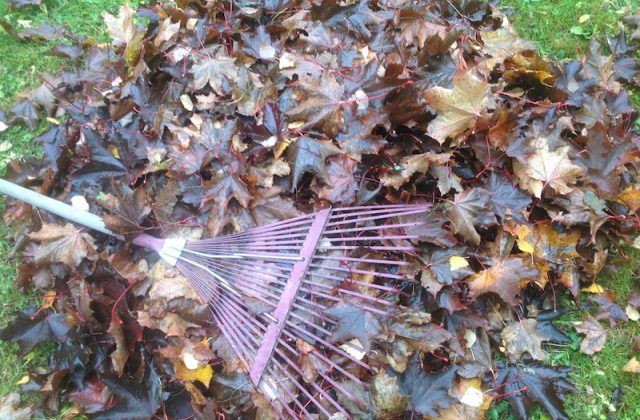Carla's blog

Things to do in the garden in October
Posted October 28, 2016
With October coming to a quick close, there are yet numerous tasks on my list to get done in the garden before the snow flies.
Prune out old Raspberry Canes.
Old plant material can serve as over-wintering sites for insects and disease. I’ve been waiting until all the leaves have dropped off the canes, which makes it so much easier to distinguish between those that are dead and those that will produce my fruiting crop come next season. The pruning process should include not only removing the spent canes, but also weak, spindly and diseased canes, too. I always top my canes at the five-foot height so they are sturdy enough to withstand the weight of wet snow.
Plant Garlic.
I’ve been holding off planting garlic since I've been having huge issues with rodents this year. I’ve received numerous emails, starting a month ago and continuing this past week, from fellow local gardeners frustrated with rodents stealing their flowering bulbs and garlic bulbs too. They describe to me the telltale signs: little mounds of cultivated soil. A quick feel around and they discover their bulbs are gone, gone, gone! I don’t know how this can be avoided entirely but I suspect holding off planting until the temperature drops a little more can’t hurt. Perhaps the cold will drive the rodents to bunk down in their homes for the winter, far away from my garlic bed.
Once I’m ready to plant, I will inspect my seed garlic carefully and look for any signs of blue-green mold, a common fungus disease that hits stored garlic and onions. It overwinters on infected cloves, not in the soil, and infects in warm soils, and dry conditions. My soil temperature yesterday was 12 degrees and we certainly aren’t suffering from dry conditions, so I think the time is right.
Mulch the Garden Beds.
I’m waiting until the ground freezes before applying my mulch of clean straw. Applying mulch too early will serve as an insulator that may encourage rodents to create cozy homes in between the warm soil and the 6” layer of mulch. Mulching is an important fall task to protect the soil from erosion, moderate freeze/thaw cycles that occur over winter, and add material to enhance soil structure as it breaks down. So I’ve got my mulch standing at the ready and when the time is right I will layer it on.
Rake the leaves.
This time of season, collecting as many leaves as possible is high priority. I collect enough to mulch the garden and flower beds for winter and storing some in a protected area where they will remain dry over the winter for composting in the spring. Leaves are a valuable source of carbon-rich “browns” that will be utilized in building the compost once grass-mowing season starts producing an ample supply of nitrogen-rich “greens."
Sift the vermicomposting bin.
I had this on my list of things to do way back in August but never got to it. Harvesting the worm castings and adding them to my house plants is a fun job. This is when you get a close up view of the reproduction rate of those little red wrigglers that have been hard at work chomping up your kitchen fruit and vegetable waste. I started with one pound and typically sell three or four pounds of worms each season. They live in a spacious cedar box and I feed them an ice cream bucket of waste every 10 days. Once the castings have been removed, I replenish the bin with moistened, shredded newsprint and a hearty supply of their favourite fruits and vegetables. You should avoid citrus, onions and garlic completely, as it appears, from my observations, that the worms don’t like them at all. It’s always better if the compost is in small pieces. If I have too much to feed them all at once, I place the extra in a bag and toss it in the freezer. Smaller pieces accelerate the decomposition process, allowing the worms to sink their teeth in and start eating right away. Accessible food is directly linked to the worms ability to reproduce. If food supply is scarce, then reproduction will slow down, and of course if food is abundant so will be their offspring. It boils down to this: the more scraps consumed, the more black gold you have to work with.